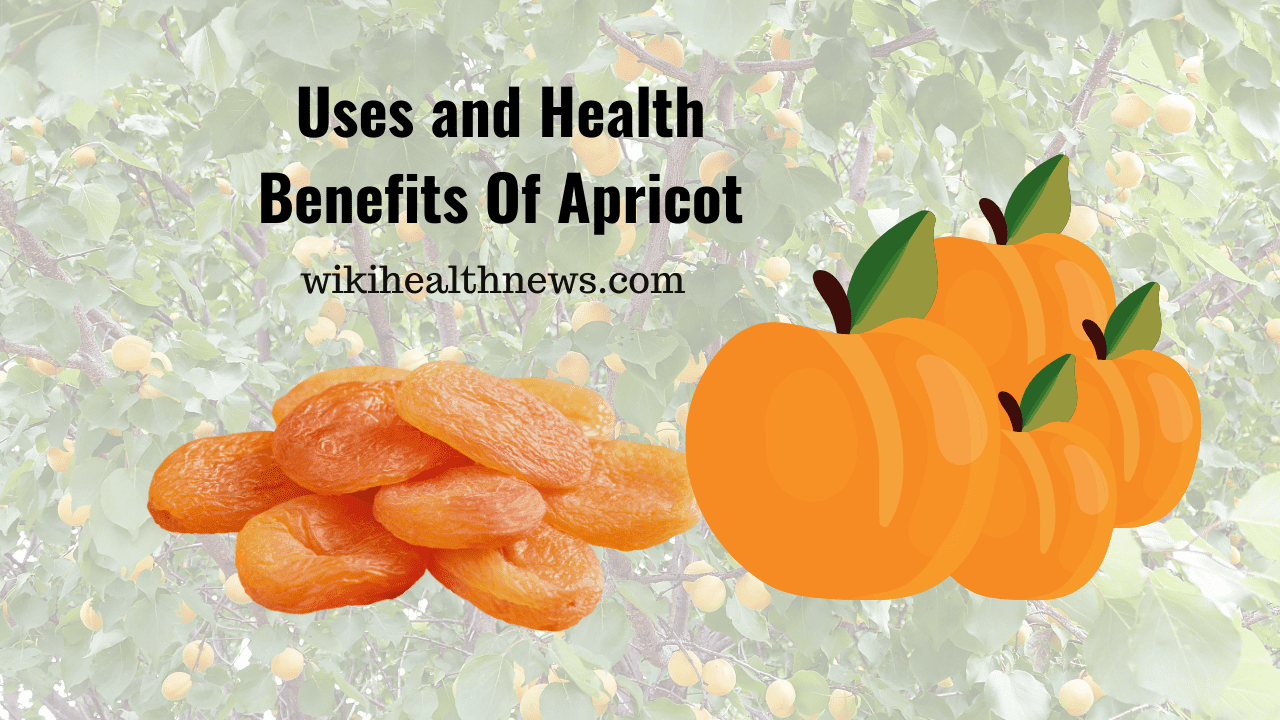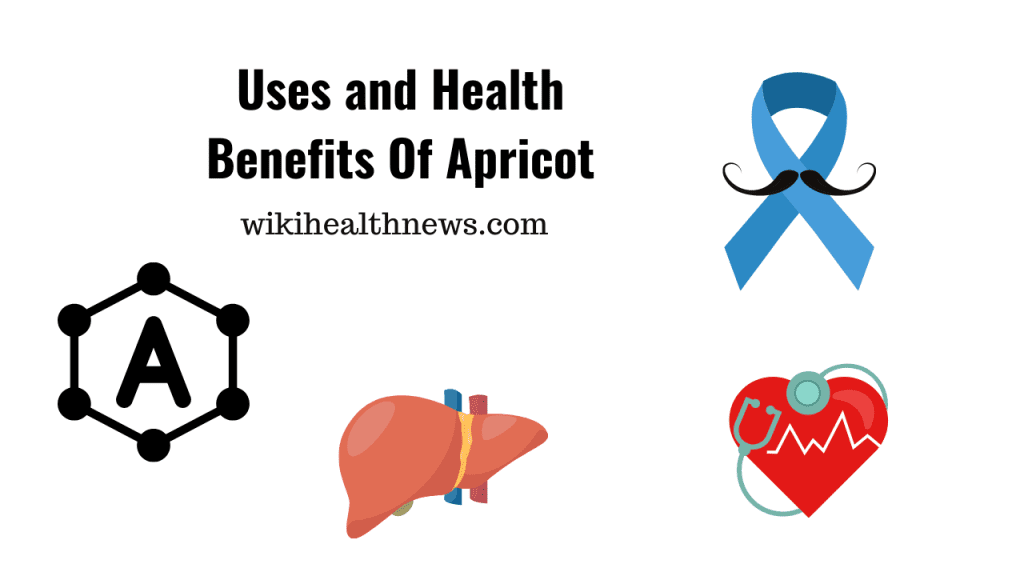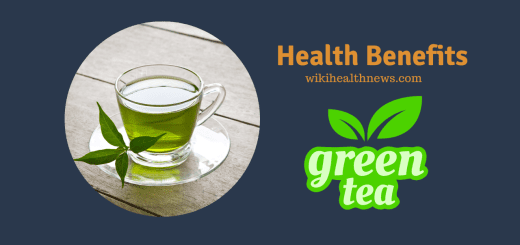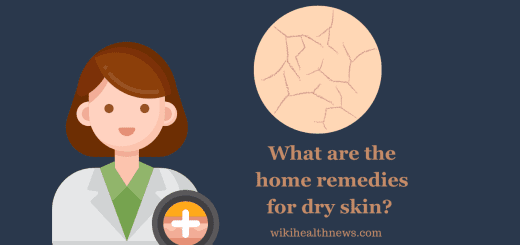Apricot : Uses and Health Benefits

Apricots also known as Prunus armeniaca are small stone fruits that range in color from yellow to orange. Also, due to sun exposure they are mostly tinged red on their sides. The surface of apricots are made up of smooth or velvety minute hair. The flesh of apricot is firm and their taste can be either sweetish or sour.
Apricot contains phytochemicals like as polyphenols, flavonoids, phenolic acids and carotenoids that add color, taste, and nutritional value to the fruit.
It is found in temperate regions, especially in the Mediterranean. The intake of fruit is either fresh or cooked. Apricot fruits are used in making jams and in production of flavors for liqueurs. They are high in natural sugar and are rich source of vitamin A. Dried apricots are rich in iron.
Nutritional Value:
Let us first know the nutritional value of apricot. Two fresh apricots (70 grams) contain:
- Calories: 34
- Carbohydrate: 8 g
- Protein: 1 g
- Fat: 0.27 gm
- Fiber: 1.5 g
- Vitamin A: 8% of the DV
- Vitamin C: 8% of the DV
- Vitamin E: 4% of the DV
- Potassium: 4% of the DV
Health and Healing properties of Apricot
- Apricot has the amazing properties,
- Antiparasitic, antiageing and anticancerous property.
- Works as an hepatoprotective (liver protecting) and renoprotective.
- A good antioxidant and helps in deforming atherosclerotic changes.
- It helps in relieving chest pain and also used as an sedative agent.
- Has an antimicrobial and anti-inflammatory potential.
Uses of Apricot
Potential use of apricot for cancer:
- The most common degenerative condition and leading cause of mortality followed by cardiovascular disorders is cancer. Apricots have been reported with anti-cancer potential.
- A compound isolated from MK615, a Japanese variety of apricot, shows potential antitumor activity against colon cancer cells, liver cancer cells, and human pancreatic cells in laboratory trials.
As an antioxidant:
Oxidative stress is a phenomenon that occurs due to imbalance between the production and gathering of reactive oxygen in cells and tissues. It is the inability of body to detoxify the compounds. It produces reactive oxygen species and free radicals that cause damage of macromolecules (lipids, nucleic acids, and proteins) and cause tissue injuries. This stress leads to chronic diseases like cancer, ulcers, diabetes, heart diseases and inflammations.
Use of apricot for the heart:
- Risk factors for heart diseases include atherosclerosis where there is accumulation of fats, cholesterol and other substances in the artery walls ,high cholesterol levels, and other conditions.
- Phenolic compounds present in apricots like lycopene, chlorogenic acid help with the oxidation of low-density lipoprotein (LDL) and might help improve the antioxidative status of the human body. Apricot is highly sourced in fibre.
- Soluble dietary fibre is known to be efficient in decreasing LDL cholesterol which is a bad cholesterol.

Beneficial effects for liver:
- Hepatic steatosis also known as fatty liver disease is fat accumulation in the liver.
- Hepatic steatosis lead to complication like steatohepatitis where there is inflammation of the liver with fat accumulation, cirrhosis where healthy liver tissue replaced with scar tissue leading to permanent liver damage and advanced fibrosis.
- Apricot helps in reduction of fat accumulation .
Apricot for infections:
- The Japanese variety of apricot might help against the colonization of H. pylori in the digestive system, hence it is helpful against gastritis.
- The ethanolic extract of apricot exhibit antimicrobial activity against gram-positive bacteria and exhibits antibacterial activity against organisms like Staphylococcus aureus and Bacillus subtilis.
Potential use of apricot for eyes:
- Apricots contain vitamins like vitamin A and E that improve the health of your eyes.
- Vitamin A is helpful in preventing night blindness from getting affected. Fat-soluble vitamin E enters the eyes directly and safeguards them from free radical damage.
- Apricots contains valuable carotenoids like lutein and zeaxanthin which protect your eyes against oxidative stress.
Apricot for skin:
- Intake of apricots will protect your skin from damaging factors like the sun, pollution and cigarette smoking.
- Vitamins C and E in apricots add nutrients to skin. Vitamin C produces collagen that helps to improve the elasticity and strength of your skin.
- Vitamin C removes free radicals from your body giving protection against UV damage and environmental pollutants . Beta carotene in apricots has the ability to protect your skin against sunburns.
For Healthy Gut:
- Apricots are rich in soluble and insoluble fibers. Apricots are high in soluble fiber which helps in maintaining healthy blood sugar and cholesterol levels.
- Fibers improves your gastrointestinal functions and are good for healthy gut bacteria. A healthier gut microbiome reduces the risk of obesity.
Rich in potassium:
- Apricots contain potassium which is efficiently responsible for sending nerve signals and controls muscle contractions and balances fluid in body.
- Adequate intake of apricot rich in potassium will prevent bloating and maintain healthy blood pressure.
Read More











